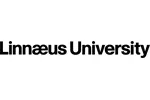

| The award | How you will study | Study duration | Course start | Domestic course fees | International course fees |
|---|---|---|---|---|---|
| Master Degree | Full-time | 2 years | August | SEK 77500 per semester | SEK 77500 per semester |
The Master of Science in Evolutionary ecology is multidisciplinary and builds on the student's knowledge of ecology, evolution and organism biology in order to explore and appreciate biological diversity. During the first year, students are introduced to traditional aspects of biology such as systematics, taxonomy, and distribution, and to current research topics in ecology including life-history strategies, behavior, and evolutionary adaptations of organisms. Students are also introduced to how individuals, populations and species are influenced by and cope with spatial and temporal changes in the environment, including climate change and human activities such as habitat modification.
The program will enable students to develop understanding of theories and practical issues, and critical thinking skills that form the foundation upon which the scientific process rests. Students are given opportunities to improve their ability to consume, understand, evaluate, and communicate research. This helps students prepare for doctorate training and a future scientific career. Knowledge and understanding of topics covered in the program is also a key to developing and implementing successful solutions to problems in applied areas.
The second year is focused on a research project including a written thesis (30-60 higher education credits) with an appropriate advisor. The Master’s thesis is carried out in fields related to research interests at the Linnaeus University Center for “Ecology and Evolution of Microbial model Systems, EEMiS”, including practicals giving the opportunity to apply acquired knowledge.”
The selection of students who have applied is based on academic excellence and individual assessment. All applicants should apply via universityadmissions.se. The application should include a letter of interest, curriculum vitae, diplomas and references.
General entry requirements for secondcycle studies and specific entry requirements:
- 90 credits in Biology/Ecology/ Evolutionary biology/ Microbiology including an independent project/degree project worth at least 15 higher education credits, or the equivalent.
- English B/6 or equivalent.
Below are some suggested courses at other providers that you may also be interested in:
Acting - Foundation (Stage & Screen) Cert HE
The Liverpool Institute for Performing Arts (LIPA)
Find out morePsychology - Cognitive Processes and Technologies MSc
Berlin School of Business and Innovation
Find out moreData Science and Artificial Intelligence (Conversion) MSc, PG Cert, PG Dip
University of Liverpool Online Programmes
Find out moreIf you do not meet the entry requirements for this course then consider one of these postgraduate preparation courses from another institution:
Graduate Diploma in Law/Common Professional Examination GDL/CPE
Northumbria University Newcastle
Find out moreThere are 46 other courses listed from Linnaeus University. A selection of these are displayed below:
Business Process Control and Supply Chain Management - Frontiers in Logistics & Supply Chain Management Master Degree
Linnaeus University
Find out moreBusiness Process Control and Supply Chain Management - Frontiers in Management Accounting & Process-based Control Master Degree
Linnaeus University
Find out moreFind out more about studying in Sweden